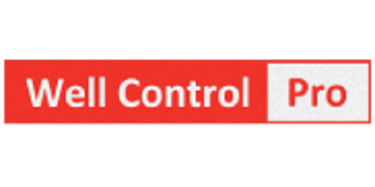TRAIN LIKE A PRO. ANYTIME. ANYWHERE.
AI-powered Well Control and Well Servicing simulators & courses.
GET STARTED NOW!
OGOR Training for Oilfield Professionals: Essential Skills for Digital Compliance
OGOR TRAINING


OGOR Training for Oilfield Professionals: Essential Skills for Field Representatives
As regulatory compliance takes center stage in the oil and gas industry, OGOR (Oil and Gas Operator Representative) training is becoming increasingly vital for frontline personnel. Field engineers, production supervisors, and site managers all need comprehensive OGOR training to effectively represent their companies and ensure operational excellence.
In 2025, qualified Oil and Gas Operator Representatives are more critical than ever due to increased safety protocols, expanded regulatory oversight, and updated field management requirements. Here's how oilfield professionals can prepare with simulation-based training and structured learning programs.
Why OGOR Training Matters
Having properly trained Operator Representatives prevents safety incidents, ensures regulatory compliance, and maintains operational efficiency. Training helps representatives understand their responsibilities, develop technical expertise, and master the communication skills necessary for the role.
OGOR responsibilities include:
Managing day-to-day wellsite operations
Ensuring safety protocol compliance
Overseeing contractors and service providers
Coordinating with regulatory inspectors
Troubleshooting production issues
Key Topics Covered in OGOR Training
Safety Management Systems and Leadership
Regulatory Compliance Framework (federal, state and local requirements)
Well Operations and Production Optimization
Emergency Response and Incident Management
Environmental Protection and Waste Management
Contractor Supervision and Management
Best Training Methods for 2025
1. Simulator-Based Learning (Well Control Pro) Use real-world simulation models to practice emergency responses, optimize production parameters, and test different operational scenarios. Representatives receive immediate feedback on decisions and actions.
2. LMS-Integrated OGOR Certification Programs Online learning platforms now include comprehensive OGOR certification tracks, with video lessons, interactive scenarios, field exercises, and certificate issuance.
3. Mock Inspections and Audits Simulated regulatory visits train representatives on how to professionally interact with inspectors, present required documentation, and demonstrate compliance protocols.
4. Role-Based Training Modules Training can be tailored based on operation type (conventional, unconventional, offshore) and specific regulatory jurisdictions.
Who Should Be Trained as OGORs?
Field supervisors and team leads
Production engineers and technicians
Well operators and maintenance personnel
Safety coordinators and environmental specialists
Site managers and operations directors
Summary
In 2025, OGOR training is an essential investment in operational excellence—not just a regulatory checkbox. Using advanced tools like Well Control Pro simulations and field-based learning ensures representatives can confidently manage daily operations, respond to emergencies, and maintain compliance with evolving industry standards.
Connect
Contact us for training solutions and inquiries.
Support
Courses
© 2025. All rights reserved.
